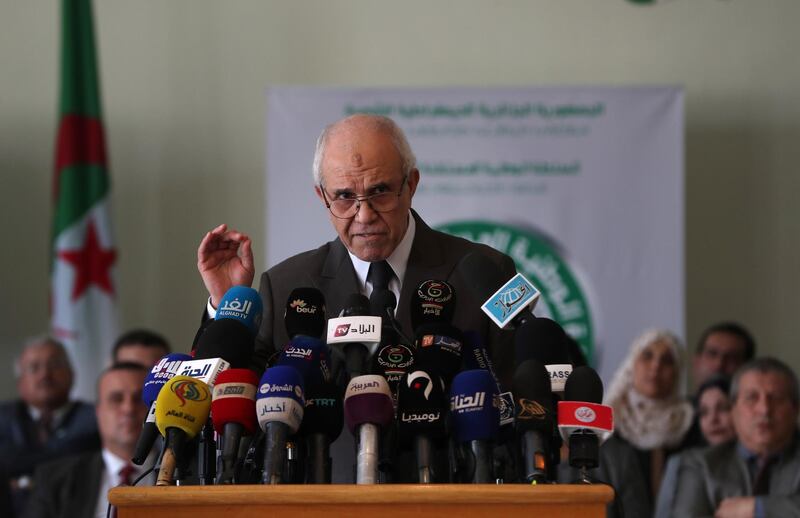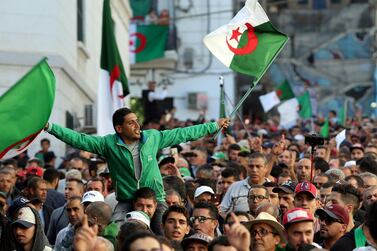Algeria’s electoral body on Saturday announced five candidates for the December 12 presidential election, including two former prime ministers, amid mass protests rejecting the vote.
The authorities have repeatedly said the election was the only way to get out of a crisis the country has been facing since the resignation of President Abdelaziz Bouteflika in April under pressure from protesters.
Candidates for the election include former prime ministers Abdelmadjid Tebboune and Ali Benflis, former culture minister Azzedddine Mihoubi, former tourism minister Abdelkader Bengrina, and Abdelaziz Belaid head of the Al Mustaqbal Movement party.
They were announced by Mohamed Chorfi, the head of the election authority.
Almost two dozen candidates had applied to the election authority, but most failed to meet requirements which include collecting signatures from 25 of the country's 48 provinces. Those who were rejected will be allowed to file appeals.
Tens of thousands of protesters have been staging weekly demonstrations to reject the election, saying it will not be fair as some of Mr Bouteflika's allies are still in power.
Mr Bouteflika’s two decades in power ended in April after mass protests broke out on February 22 demanding the removal of the ruling elite and the prosecution of people involved in corruption.
The army is now the main player in Algeria's politics, and its chief of staff Lt Gen Ahmed Gaid Salah has vowed transparency and fairness for the December vote.
The authorities also met some protesters' demands by detaining several former officials including two ex-prime ministers and several prominent businessmen over corruption charges.
Protesters are now demanding the departure of the remaining symbols of the old guard including interim president Abdelkader Bensalah and Prime Minister Noureddine Bedoui.
Algeria had cancelled a presidential vote planned for July 4, citing a lack of candidates.
"There will be full transparency in the handling of the presidential election," Mr Chorfi said.
Observers are predicting a weak turnout.
Who are the candidates?
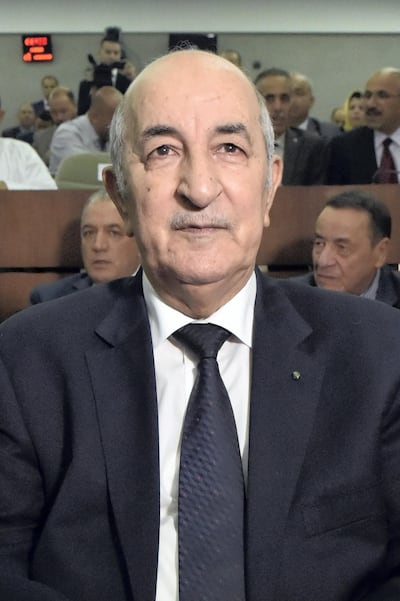
Abdelmadjid Tebboune
Mr Tebboune, 73, has returned from political purgatory to participate in the election after he was sacked by Mr Bouteflika in August 2017 less than three months after being appointed prime minister. He had made fiery statements against the businessmen loyal to the former president and allegedly criticised the presidency.
After Mr Bouteflika's ouster, several prominent businessmen were placed under custody amid a crackdown on corruption launched by the Algerian justice and Mr Tebboune is now considered one of the more serious contenders in the election. He is also a twice former minister of housing.
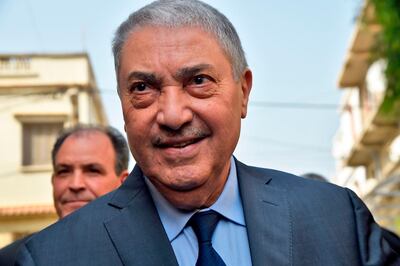
Ali Benflis
Chairman of the Talaie El Hurriyet party, Mr Benflis, 75, is also a former prime minister, having taken up the role between 2000 and 2003. He also stood in presidential elections against Mr Bouteflika in 2004 and 2014 and is acceptable to the regime as he has rallied to the army's agenda, although he may be considered too old guard for voters.
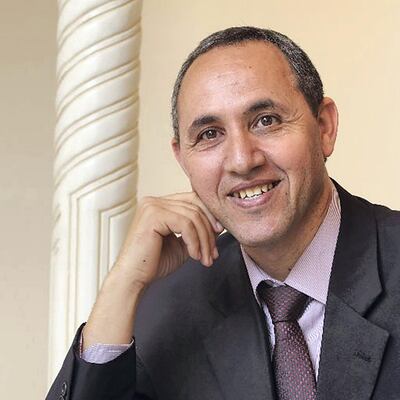
Azzedddine Mihoubi
Mr Mihoubi was Minister of Culture from 2015 to 2019 in three different governments, all headed by Mr Bouteflika, he assumed leadership of the Democratic National Rally (RND) in July after its former head was arrested in a corruption probe. The RND was the main ally of the former president's party, perhaps also providing little new to those who have taken to the streets to demand change.
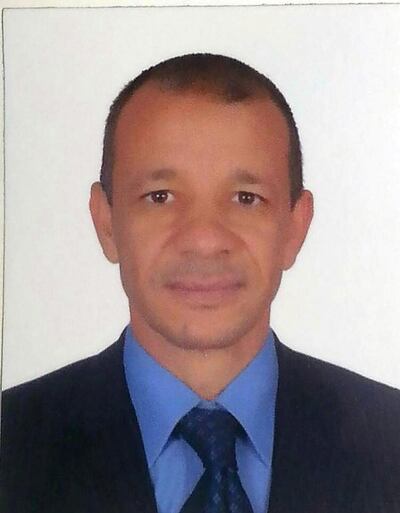
Abdelkader Bengrina
Mr Bengrina was Minister of Tourism from 1997 to 1999 in a coalition government in which his former party, the Movement for Peace Society, the main Islamist party, took part. He then created in 2013 the El Bina Movement with other dissidents of the MSP.
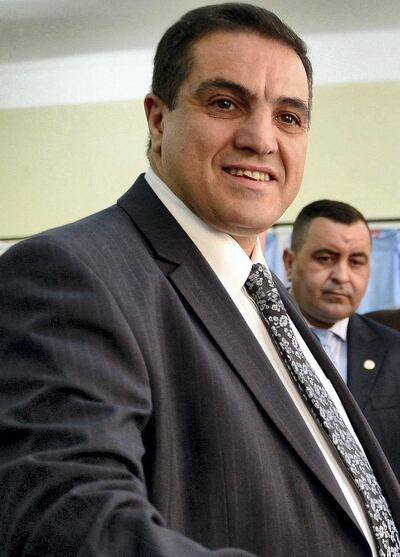
Abdelaziz Belaid
A doctor by training, Mr Belaid, 55, could appeal to younger voters. He was involved with the ruling FLN from the age of 23 and was twice deputy of the National Union of Young Algerians, the party's youth wing, before leaving to form his own party in 2012. He is a safe outsider who is low-risk for the regime.
